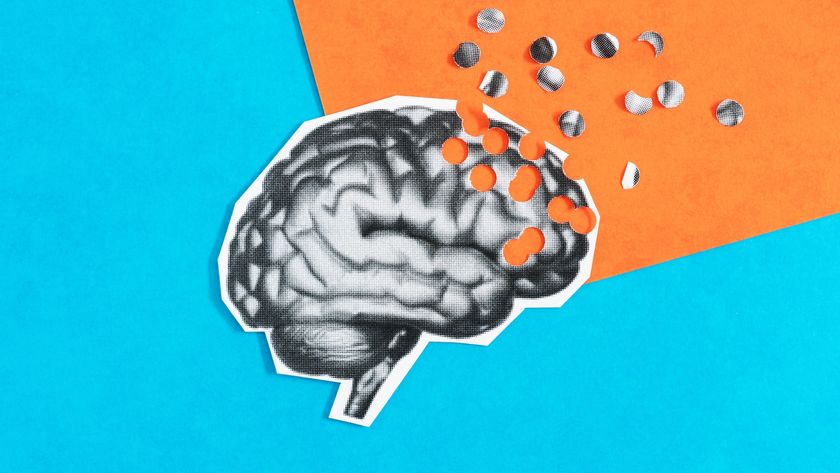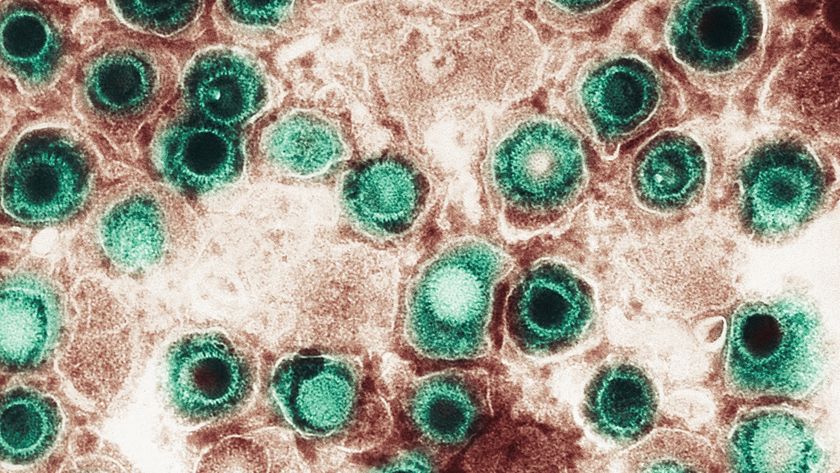Drug for Mild Alzheimer's Largely a Flop
A drug frequently prescribed to treat people with mild Alzheimer's disease does not appear to be an effective therapy for many of these patients, according to a new study.
The results show the drug, memantine, is no better than a dummy pill when it comes to ameliorating disease symptoms, including the decline of mental abilities, the researchers say. There is also meager evidence that the drug works for patients with moderate Alzheimer's , the researchers say.
Memantine is approved by the Food and Drug Administration to treat patients with moderate and severe Alzheimer's. However, physicians often prescribe it off-label to those with mild forms of the disease. About 19 percent of U.S. patients with mild Alzheimer's disease take the drug, the researchers say. The drug is intended to improve cognitive functions and make it easier for patients to perform daily activities.
Though there is no proof that the drug thwarts disease progress , some physicians may prescribe it, and some patients may take it, "under the hopes that it's better to treat with this drug now rather than it is to wait until somebody becomes severe and then treat them," said study researcher Dr. Lon Schneider, of the University of Southern California Keck School of Medicine in Los Angeles.
Doctors should take into account these new findings when they consider treating mild and moderate Alzheimer's patients with memantine, Schneider said. Additional studies should be conducted looking at the effects of memantine on patients with mild disease, Schneider said.
Experts agree it's too early to say whether physicians should stop prescribing this drug for patients with mild Alzheimer's disease. "Physicians should become as educated as possible about the drugs and use them with their best judgment," said William Thies, chief medical and scientific officer at the Alzheimer's Association, who was not involved in the study. "The success or lack of success is such a close call, and the effects are so small, I think a blanket recommendation is very hard to give at this point," Thies said.
The study is published online today (April 11) in the journal Archives of Neurology.
Sign up for the Live Science daily newsletter now
Get the world’s most fascinating discoveries delivered straight to your inbox.
Drugs for Alzheimer's disease
It is estimated that as many as 5 million Americans have Alzheimer's disease, according to the Centers for Disease Control and Prevention. Patients are categorized as having mild, moderate or severe forms of the disease depending on how well they score on a test designed to assess mental abilities. Patients with lower scores have a higher degree of mental impairment . Studies investigating the effects of memantine on Alzheimer's disease have generally grouped mild and moderate patients together, and so the effects on just those with mild form of the disease were unclear.
Schneider and his colleagues analyzed three studies that had randomly assigned patients to receive either memantine or a placebo. These studies included 431 patients with mild Alzheimer's and 697 patients with moderate Alzheimer's. The researchers were able to extract the information on patients with mild Alzheimer's disease and examine it separately.
Mild Alzheimer's patients on the drug fared no better than patients on the placebo in terms of improvement of symptoms and their ability to carry out daily activities.
The drug had a small effect on those with moderate Alzheimer's disease when the researchers combined information from the three trials.
Do some patients benefit?
Thies notes patients can vary widely in their response to the drug. It's possible that some patients with mild Alzheimer's disease do improve significantly, but these positive effects are hidden because many other patients in the trial do not improve.
"We don't have a good way of picking out who will respond ahead of time," Thies said.
Further studies may provide a better idea of which patients benefit most from the drug, but this information would be hard to tease out, Thies said.
Pass it on: The Alzheimer's drug memantine does not improve symptoms in patients with mild Alzheimer's disease.
6 Foods That Are Good for Your Brain New Genes for Alzheimer's Found Memory Tricks Can Help Patients with Early Alzheimerâ??s
Follow MyHealthNewsDaily staff writer Rachael Rettner on Twitter @RachaelRettner.

Rachael is a Live Science contributor, and was a former channel editor and senior writer for Live Science between 2010 and 2022. She has a master's degree in journalism from New York University's Science, Health and Environmental Reporting Program. She also holds a B.S. in molecular biology and an M.S. in biology from the University of California, San Diego. Her work has appeared in Scienceline, The Washington Post and Scientific American.











